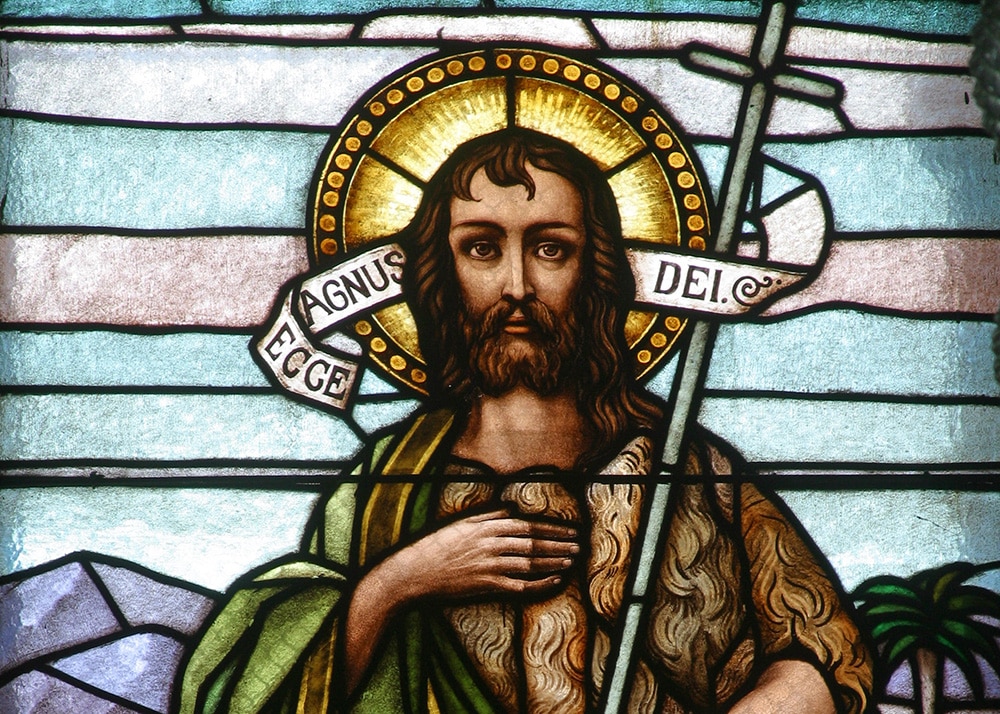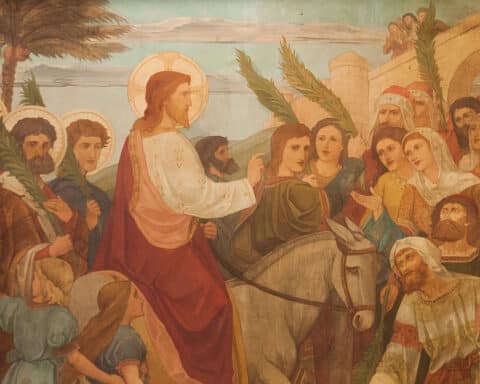
— Name withheld
Answer: The verse you cite is Matthew 11:3. There are different views on how to understand this. One view holds that John is not confused at all and is merely trying to encourage his disciples and sends them to Jesus with their concerns — concerns that he does not share. Many of the Church Fathers held this view.
Another view holds that John may well have been confused. It seems he had in mind that the Messiah would usher in a dramatic era where the wicked were distinguished from the just. “When he saw many of the Pharisees and Sadducees coming to his baptism, he said to them, ‘You brood of vipers! Who warned you to flee from the coming wrath? … The ax lies at the root of the trees. Therefore every tree that does not bear good fruit will be cut down and thrown into the fire. I am baptizing you with water, for repentance, but the one who is coming after me is mightier than I. I am not worthy to carry his sandals. He will baptize you with the holy Spirit and fire. His winnowing fan is in his hand. He will clear his threshing floor and gather his wheat into his barn, but the chaff he will burn with unquenchable fire” (Mt 3:7, 10-12).
So John the Baptist may have been expecting a drastic entrance of a Messiah intent on meeting out justice. But instead, Jesus was going about quietly, preaching in the backwaters, healing the sick and calling the poor rather than confronting the power brokers and overthrowing injustice. Perhaps for this reason, he sent word asking of Jesus’ identity.
Jesus’ answer (whether to confirm John’s disciples, or John himself) emphasizes that he fulfills many Old Testament prophecies of what the Messiah would do: “Go and tell John what you hear and see: the blind regain their sight, the lame walk, lepers are cleansed, the deaf hear, the dead are raised, and the poor have the good news proclaimed to them. And blessed is the one who takes no offense at me” (Mt 11:4-6).
Catholics generally favor the view that John was not discouraged, but merely that he was giving Jesus an opportunity to encourage others. However, either view is permissible for a Catholic to hold.
Rose vestments
Question: Last weekend at Mass, our priest was wearing pink vestments. Why is this? And why do I see it in some parishes but not all?
— Jonathan Hunter, Mobile, Alabama
Answer: The more usual designation of the color is rose, not pink. But to many the colors seem alike. There are two Sundays of the year when rose-colored vestments are worn. Gaudete (the Third Sunday of Advent) and Laetare (the Fourth Sunday of Lent). Both Latin words are similar in meaning and translate to “rejoice” or “be glad” in English. These Sundays get their name from the entrance antiphon for that Sunday.
The idea of the color derives from a lightening of the purple colors that are ordinarily used in Advent and Lent. Take the penitential purple and mix in some white from the seasons of Christmas or Easter and you get rose, or pink. Perhaps for these two days, one is able to relax a bit on penances they have undertaken. At the very least, the rose signals that the feast of Christmas or Easter is getting near.
While some do not think of Advent as a penitential season today, it certainly was in the past and still is in many Eastern rites. Hence the use of purple and the one Sunday of rose are still observed for Advent. Each of us still should be encouraged to undertake some sacrifice or spiritual discipline in preparation for Christmas, even if the focus is less heavy than in Lent.
Rose vestments are not required for use on these two Sundays. Some parishes do not have them on hand. Some parishes with limited funds may not see the prudence in purchasing expensive vestments that are used only twice a year. In some cases, priests simply do not prefer the color. Increasing numbers of parishes, however, have returned to using rose vestments, seeing it as a beautiful tradition with meaning.
Msgr. Charles Pope is the pastor of Holy Comforter-St. Cyprian in Washington, D.C., and writes for the Archdiocese of Washington, D.C. at blog.adw.org. Send questions to msgrpope@osv.com.





